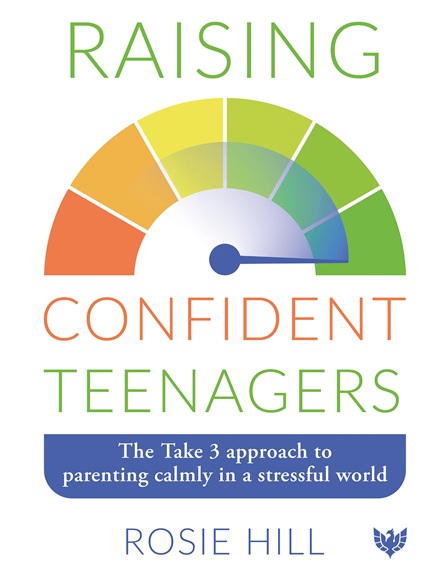Siblings: Envy and Rivalry, Coexistence and Concern

Book Details
- Publisher : Routledge
- Published : May 2014
- Cover : Paperback
- Pages : 320
- Category :
Child and Adolescent Studies - Category 2 :
Psychoanalysis - Catalogue No : 33778
- ISBN 13 : 9781780491813
- ISBN 10 : 1780491816
Our Customers Average Rating
Read all reviews (1)





This book consists of selected texts presented at the EFPP Conference in Cracow, Poland, in October 2011. It is an attempt at finding the place of sibling relationships in psychoanalytic theory and practice. Like the Conference, it is in dialogue with the emerging interest in the role of siblings in the formation of the self – marked by the works of Juliet Mitchell, Prophecy Coles and others.
The texts show not only the theory but also the practice of dealing with sibling-related problems, and their impact on psychoanalytic institutions. Practitioners share their experience of working with siblings of disabled children, cancer in the family, coping with the loss of a sibling, helping families to adapt to a new baby, dealing with fantasy and reality of murderousness towards siblings, and transgenerational transmission of trauma. Another field of interest is the specificity of transference – countertransference issues related to siblinghood. The findings of a preliminary research program on the impact of having “brothers and sisters in analysis" are cited. The editors also have an opportunity to draw from the knowledge of group analysts about sibling issues. In the search for mythological transmission the biblical stories are analysed as sources of possible insights on the nature and the working through of the powerful dynamics of sibling relationships.
The range of various vantage points from which the authors describe the sibling relationship gives an overview of the recent approach to the field of siblinghood in psychoanalysis.
Reviews and Endorsements
‘This collection of papers superbly illustrates the complexity of sibling relationships as they unravel in psychoanalytic psychotherapy, and also demonstrates how therapeutic the work can be. For psychoanalysis the key question is whether siblings demand an additional paradigm to the child–parent vertical axis with which so far they have been amalgamated? Without this, siblings are potentially both “nowhere” as autonomous entities within psychoanalytic theory and “everywhere” in the clinical work. These papers contribute magnificently to an understanding of the “everywhere” from which the “nowhere” may, or may not, become “somewhere”.’
— Juliet Mitchell, a Fellow of the British Psychoanalytical Society and the International Psychoanalytical Association, Professor of Psychoanalysis and Gender Studies at Cambridge University, Director of the Expanded Doctoral School in Psychoanalytic Studies at the Psychoanalysis Unit of University College London and author of Siblings: Sex and Violence
‘In my daily work as a psychoanalyst I repeatedly observe that being the sole child can create as many problems for the patient as having siblings. Besides the oedipal and the mother–child relationships, there is definitely a place in psychoanalytic theory for siblings’ relationships. The role of siblinghood is not restricted to a negative one (such as the story of Cain and Abel), it may also be positive in facilitating the consolidation of the narcissism and the building up of the I, of the subject. This book is a challenging and welcome attempt at filling a gap, covering a wide scope of interesting theoretical and clinical issues.’
— Professor François Ladame, psychoanalyst (Société Suisse de Psychanalyse), psychiatrist, and author of Les Éternels Adolescents: Comment Devenir Adulte
Contributors: Ewa Back, Rachel Blass, Francesco Bisagni, Deborah Blessing, Daniela Cantone, Prophecy Coles, Rossella Coveri, Françoise Daune, Evalotta Enekvist, Anna Faber, Carmela Guerriera, Michael D. Kahn, Lech Kalita, Alison Knight-Evans, Beata Maciejewska-Sobczak, Jeanne Magagna, Sarah Mandow, Miriam Monticelli, Maria Papagounou, Joanna Skowronska, Katarzyna Skrzypek, Zuzanna Stadnicka-Dmitriew, Nancy Taloumi, Agnieszka Topolewska, Sabine Trenk-Hinterberger, Franz Wellendorf, Marie-Ange Widdershoven, Chava Yanai-Malach
About the Editor(s)
Katarzyna Skrzypek is a psychologist and a graduate of Warsaw University. She is currently a Training Psychoanalytic Psychotherapist and Supervisor of the Polish Society for Psychoanalytic Psychotherapy, and a Delegate of the Polish Society to the Adult Psychotherapy Section of the EFPP. She has worked for several years with adult children of alcoholics and recovering alcoholics. She works in private practise in Warsaw, Poland.
Beata Maciejewska-Sobczak is a Training Psychoanalytic Psychotherapist and Supervisor of the Polish Society for Psychoanalytic Psychotherapy, which is a member of the European Federation for Psychoanalytic Psychotherapy (EFPP). She is a Polish Psychoanalytic Association Candidate and works in Warsaw in private practice.
Zuzanna Stadnicka Dmitriew is a psychologist and psychoanalytical psychotherapist working in private practice near Warsaw. She is a member of the Polish Society for Psychoanalytical Psychotherapy, and a Polish Psychoanalytical Association Candidate.
Customer Reviews
Our customers have given this title an average rating of 4 out of 5 from 1 review(s), add your own review for this title.
Antony Balfour on 03/10/2014 09:55:40




 (4 out of 5)
(4 out of 5)
A really nice overview of an under-theorised subject.
You may also like
Raising Confident Teenagers: The Take 3 Approach to Parenting Calmly in a...
Rosie Hill
Price £17.09
save £1.90







